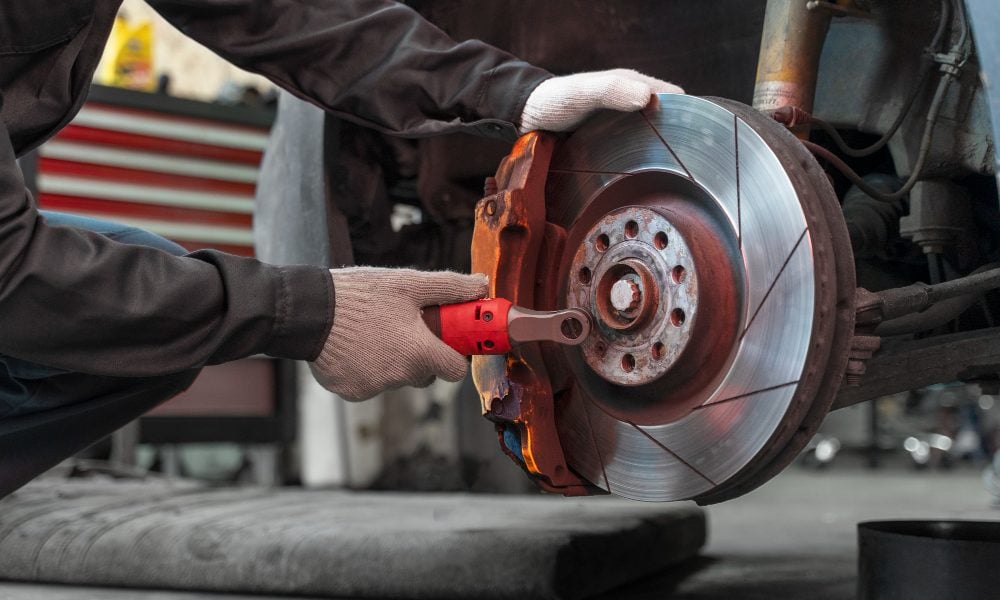
How Often to Change Brake Pads and Rotors to Keep Your Car Safe

A brake system is crucial when it comes to maintaining your vehicle’s safety. Every driver should be familiar with the question, “How often to change brake pads?” Brake pads and rotors are vital to your car’s ability to stop efficiently, ensuring you can react quickly in unexpected situations. Ignoring the condition of these parts can lead to decreased stopping power, longer braking distances, and an increased risk of accidents.
Understanding Brake Pads and Rotors
Before diving into how often these components should be replaced, it’s essential to understand what brake pads and rotors do. Brake pads are small yet critical components that press against the rotors (the large metal discs inside your wheels) to create the friction necessary to slow down your car. Over time, this friction wears down both the brake pads and the rotors, necessitating their replacement.
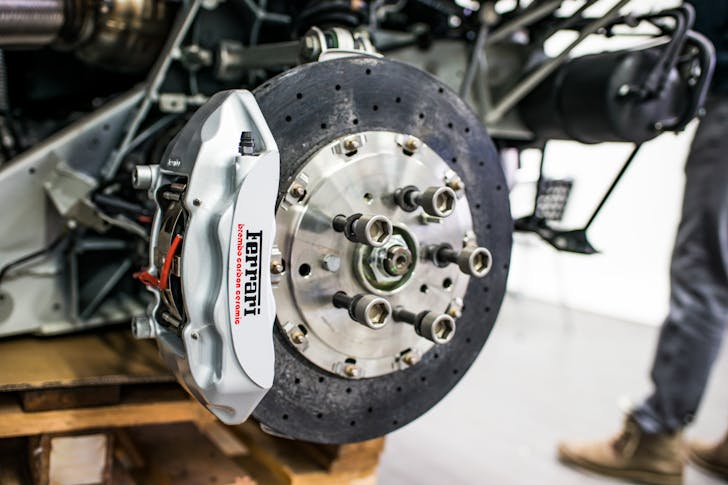
Lex Ger | Pexels | Brake pads are small yet critical components that press against the rotors to create the friction necessary to slow down your car.
Rotors are designed to withstand significant wear and tear, but they are not invincible. As you drive, the constant pressure and heat generated during braking cause them to thin and develop grooves. Brake pads, made from a combination of materials like metal shavings, rubber, and resin, wear out even faster due to the intense friction they endure with each stop.
How Often to Change Brake Pads
Brake pads generally need replacement every 10,000 to 20,000 miles, depending on your driving habits and the type of vehicle you own. If you frequently drive in heavy traffic or on winding roads, you may find that your brake pads wear out closer to the 10,000-mile mark. Conversely, highway driving with minimal braking can extend the life of your brake pads.
It’s not just the mileage that dictates when you should change your brake pads. Listen to your car. High-pitched screeching or squealing noises when braking often indicate that your brake pads are worn out and need replacing. A small metal shim typically causes this sound, called an indicator, that’s built into the brake pad. When the pad wears down, the indicator makes contact with the rotor, creating that distinctive noise as a warning sign.
Another sign to watch for is a vibrating or pulsating brake pedal, which can suggest that your brake pads are unevenly worn or that your rotors are warped. In either case, it’s time to get your brakes checked out.
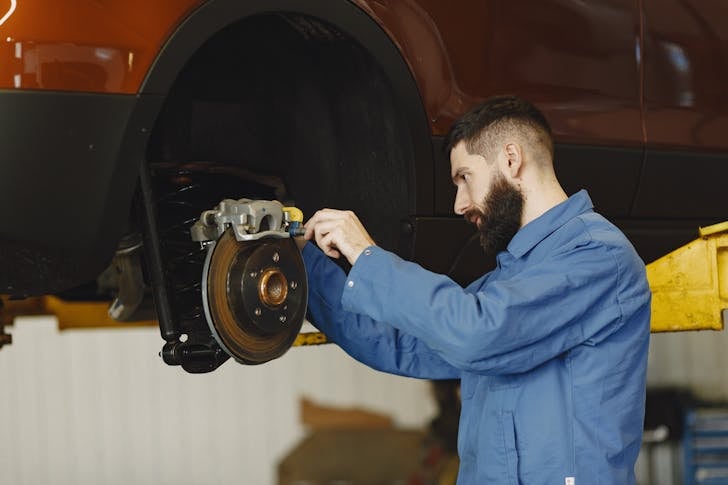
Gustavo Fring | Pexels | Brake pads need replacement every 10,000 to 20,000 miles, depending on your driving habits and the type of vehicle you own.
How Often to Change Rotors
While brake pads wear out more quickly, rotors generally have a longer lifespan. Most rotors should be replaced every 50,000 to 70,000 miles. However, if you frequently drive in conditions that are hard on your brakes—like towing heavy loads, driving in mountainous areas, or making lots of stop-and-go trips—you may need to replace your rotors sooner.
Worn-out rotors can cause various issues, including increased stopping distances, a spongy brake pedal, and even brake failure in extreme cases. If you feel vibrations in the steering wheel when you apply the brakes, it could indicate that your rotors are warped and need to be replaced.
Signs Your Brake Pads and Rotors Need Replacement
Even if you’re diligent about tracking your mileage, your brake system might still need attention sooner than expected. Here are some signs that it’s time to replace your brake pads and rotors:
- Intermittent Screeching: This high-pitched noise when braking indicates that your brake pads are worn and need replacement.
- Vibrating Steering Wheel: If your steering wheel vibrates when you apply the brakes, it could mean your rotors are uneven, or your brake pads are wearing unevenly.
- Grinding Noises: If you hear a grinding sound when you brake, it’s a sign that your brake pads have worn down completely, and the metal of the caliper is now making contact with the rotor. This situation is dangerous and should be addressed immediately.
Why Regular Replacement is Essential
Regularly replacing your brake pads and rotors is crucial not just for your safety but also for the overall health of your vehicle. Worn brake pads can damage your rotors, leading to more expensive repairs. Furthermore, driving with worn brake pads and rotors reduces your car’s braking efficiency, increasing the distance needed to stop and raising the risk of accidents.
Maintaining your brake system can improve your driving experience and safety. New brake pads and rotors provide smoother and quieter braking, making your daily drives more comfortable and reducing wear on other components of your vehicle’s braking system.
More inAdvice
-
`
Drivers’ Health is Often Overlooked – Here’s How to Safeguard It
Drivers’ health is often overlooked. Yet, it is the backbone of safe and efficient transportation. Spending long hours behind the wheel...
December 1, 2024 -
`
How to Change Engine Oil at Home in 10 Simple Steps
Maintaining your car’s engine is essential, but taking it to the shop for routine oil changes can be inconvenient and costly....
December 1, 2024 -
`
Should You Consider Winter Tires or Stick With All-Season Tires?
Winter tires can significantly enhance road safety during colder months, especially when temperatures consistently drop below 7°C. With their superior grip...
November 23, 2024 -
`
Expert Tips to Avoid the Most Common Car Insurance Scams
Car insurance scams are costing drivers millions and creating unnecessary stress for victims. These fraudulent schemes are becoming increasingly sophisticated, with...
November 23, 2024 -
`
Nissan’s 2026 EV Set to Revolutionize Home Energy with V2G Technology
Nissan’s upcoming 2026 electric vehicle (EV) lineup promises to introduce groundbreaking vehicle-to-grid (V2G) technology, redefining how EVs interact with home energy...
November 14, 2024 -
`
Are Subsidized Company Cars Blocking EV Growth in Germany?
Germany’s subsidized company car policy, where companies receive tax benefits to purchase vehicles, is significantly impacting the adoption of electric vehicles...
November 8, 2024 -
`
10 Effective Tips for Passing Your Driving Test with Ease
Passing your driving test can seem daunting, but with preparation and confidence, you can achieve success. Each step leading up to...
November 8, 2024 -
`
How to Change a Tire Quickly: 10 Simple Tips for Success
Changing a flat tyre is a vital skill that can save time and hassle. Knowing how to change a tyre quickly...
November 1, 2024 -
`
How to Secure Cheap Car Insurance in Under an Hour
Looking for cheap car insurance can be overwhelming, but the good news is you can secure coverage quickly and affordably. In...
November 1, 2024


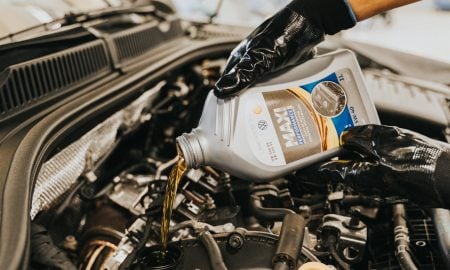
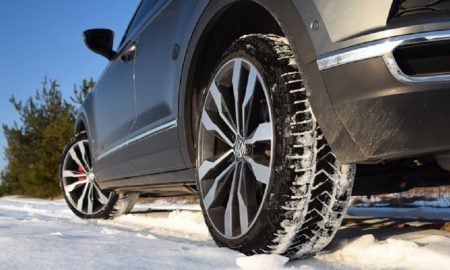

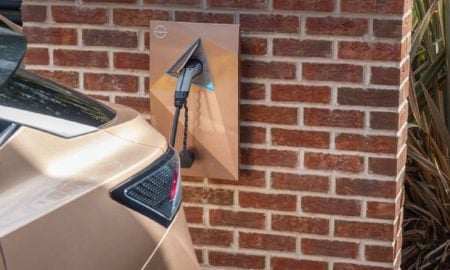
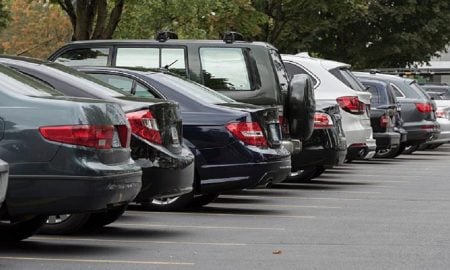
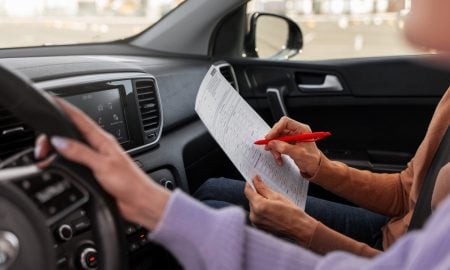
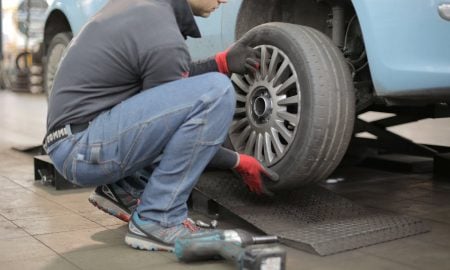

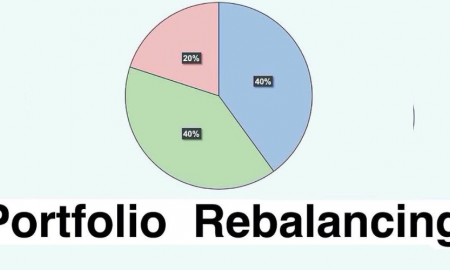
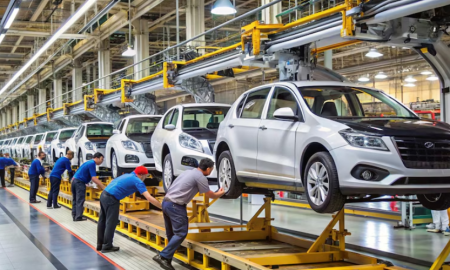
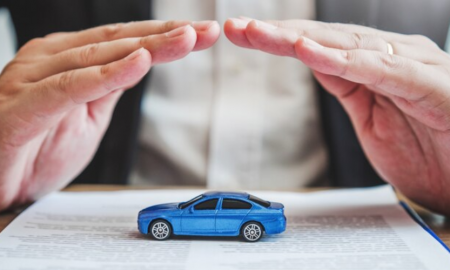


You must be logged in to post a comment Login